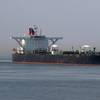Review of International Salvage Convention
A prominent Australian maritime lawyer is chairing the review of the 1989 Salvage Convention by the Comite Maritime International (CMI), which has convened a meeting in Buenos Aires this October to canvass competing industry views.
The review has been requested by the International Salvage Union (ISU) to account for escalating environmental issues as well as concerns that the professional salvage industry is inadequately compensated for their environmental protection efforts.
“The ISU has called for the review on the basis that the salvage landscape has changed dramatically in the past 20 years, making the Convention out of date,” said Stuart Hetherington, a partner with Australian law firm Colin Biggers & Paisley and Chairman of the CMI’s international working group and international sub-committee on the review of the 1989 Salvage Convention.
“The underlying aim of the Convention is to ensure that salvors receive appropriate rewards for protecting property and minimising environmental damage where there has been a shipping casualty. Ship and cargo owners, their insurers and governments, all recognise that adequate incentives to support a skilled and well-resourced professional salvage industry are crucial.
“However, the ISU claims that 20 years down the track, it’s clear that the 1989 document is not up to 21st century demands”.
Hetherington commented that the most contentious issue was whether salvors should be entitled to an award for environmental salvage that was not limited to the value of the assets preserved.
“The salvage industry argues that the Convention does not properly reward them for protecting the environment because the awards are generally capped at the value of the salved property and in many cases these assets are worth much less than the value of the work done.
“And while the Convention provides scope for ‘special compensation’ to be awarded, the ISU points out that it is only a safety net which is limited to out of pocket expenses and is not geared to provide a profit,” Hetherington said.
The ISU has pointed to the disastrous sinking of The Prestige oil tanker in Spanish waters in 2002, as a graphic example of why it is pushing for the Convention to allow salvage awards to better reflect the liabilities from which shipowners and their insurers have been spared.
In that incident, the Spanish authorities prohibited any salvage from being carried out and the subsequent sinking of the ship has given rise to hundreds of millions of dollars in environmental claims. Yet, even if salvage had been permitted, the value of the salved property was insignificant compared to the sheer size of the claims.
Hetherington noted that while industry groups had negotiated alternative arrangements to address the Convention’s limitations, the ISU was of the view that even these were no longer adequate.
“Following the Nagasaki Spirit case where the House of Lords confirmed that no profit element was available to salvors under the special compensation provisions, the salvage industry and the P&I Clubs, who insure shipowners’ against third party liabilities, struck a deal about what would be a fair rate of compensation for the equipment and services provided by salvors. While all parties agree this was a step forward, salvors continue to emphasise that this amount is still only a safety net for their losses when the award should focus on the extent they have reduced the shipowners’ environmental liabilities.
“Shipowners on the other hand, argue that salvage arbitrators have been more generous with their salvage awards in recent years, and to introduce a potentially separate, open-ended award, would only create more uncertainty”.
Hetherington added that the views of the property insurance market would also be represented at the Buenos Aires meeting. Property insurers maintain that where an award includes compensation for a salvor’s environmental protection activities, they should not be required to pick up the tab as is the case to date, but rather, it is the P&I Clubs who should foot the bill.
The CMI will continue to discuss the merits of pursuing the Review of the Salvage Convention at the Buenos Aires forum on 24-27 October 2010. If it is decided to proceed with the Review, possible outcomes may include the drafting of a new Convention, drafting a Protocol to the Convention, assisting with redrafting the Lloyds Open Form contract or assisting the interested parties in conducting further discussions.










